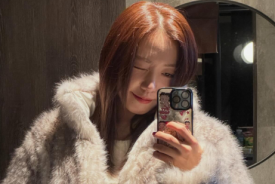Yale, Michigan Presidents To Face Private Capitol Hill Questioning Over Campus Antisemitism Allegations
ByIn a significant shift from prior expectations, the presidents of Yale University and the University of Michigan will not be appearing before a full congressional committee for a public hearing.
Instead, Peter Salovey of Yale and Santa Ono of Michigan will be questioned in private transcribed interviews by the U.S. House Education and the Workforce Committee's counsel and staff. This change has sparked discussions about the transparency and seriousness of addressing antisemitism allegations on these campuses.
Format Change and Committee's Intentions
The decision to conduct private interviews, as revealed in letters sent by committee chairwoman Virginia Foxx, contrasts sharply with the treatment of other university presidents who faced public hearings in the past six months. Foxx's letters outlined that the presidents would be questioned on June 20 and August 9, respectively. The committee's investigation focuses on alleged patterns of antisemitism at Yale and Michigan and the universities' perceived failure to protect Jewish students.
In these private sessions, the questioning will alternate between majority and minority committee staff, each having hour-long rounds. This method aims to ensure a thorough examination while possibly avoiding the media spectacle of public hearings. Foxx emphasized that these interviews are crucial to understanding and addressing the campuses' issues.
"The Committee has identified patterns of antisemitism on Yale's and Michigan's campuses and a general failure by these universities to protect Jewish students that must be addressed," Foxx stated in the press release. By opting for transcribed interviews, the committee aims to delve deeply into the universities' responses without the distractions of a public forum.
Investigation's Broader Context
The investigation into antisemitism at Yale and Michigan is part of a broader scrutiny of higher education institutions' handling of discrimination and harassment cases. In recent months, several university presidents, including those from Harvard University and the University of Pennsylvania, have faced intense public hearings. Some of these sessions resulted in significant fallout, including resignations after controversial remarks made during the hearings.
The press release did not specify why the format was changed for Salovey and Ono's questioning. However, it can be speculated that the committee aims to avoid the intense public backlash and media frenzy that followed previous hearings. This shift could also indicate a strategic move to focus on gathering detailed, actionable information without the pressure of public opinion swaying the proceedings.
The committee's actions reflect growing concerns about antisemitism on college campuses nationwide. Reports of antisemitic incidents have been rising, prompting federal and state investigations and calls for stronger protective measures for Jewish students. The outcomes of these investigations could lead to significant policy changes and reforms in university administrations.
Reactions and Implications
Reactions to the decision to hold private interviews have been mixed. Advocates for transparency argue that public hearings are essential for accountability and public trust. They believe that the private format might shield the university presidents from direct public scrutiny and diminish the impact of the investigation.
On the other hand, supporters of the private sessions contend that this format allows for more focused and uninterrupted questioning. They argue that it can lead to more substantive responses and a clearer understanding of the issues at hand. The alternating questioning method ensures that both majority and minority committee members have equal opportunities to probe the university leaders' actions and policies.
This investigation's outcome could have far-reaching implications for how universities across the country handle allegations of antisemitism and other forms of discrimination. If significant failures are found at Yale and Michigan, it might prompt other institutions to reevaluate their policies and practices proactively. Moreover, it could lead to legislative actions aimed at strengthening protections for minority students on college campuses.
The private questioning of Yale's Peter Salovey and Michigan's Santa Ono marks a critical moment in the ongoing efforts to address antisemitism in higher education. While the format change has sparked debate, the investigation underscores the importance of holding educational institutions accountable for creating safe and inclusive environments for all students. As the committee moves forward with its investigation, the higher education community will be watching closely, anticipating potential changes that could shape the future of campus culture and policies nationwide.
RELATED ARTICLE : Colleges Face Pro-Palestinian Protests With Divestment Demands
© 2026 University Herald, All rights reserved. Do not reproduce without permission.








